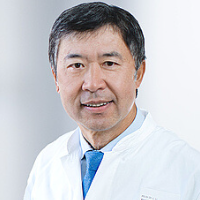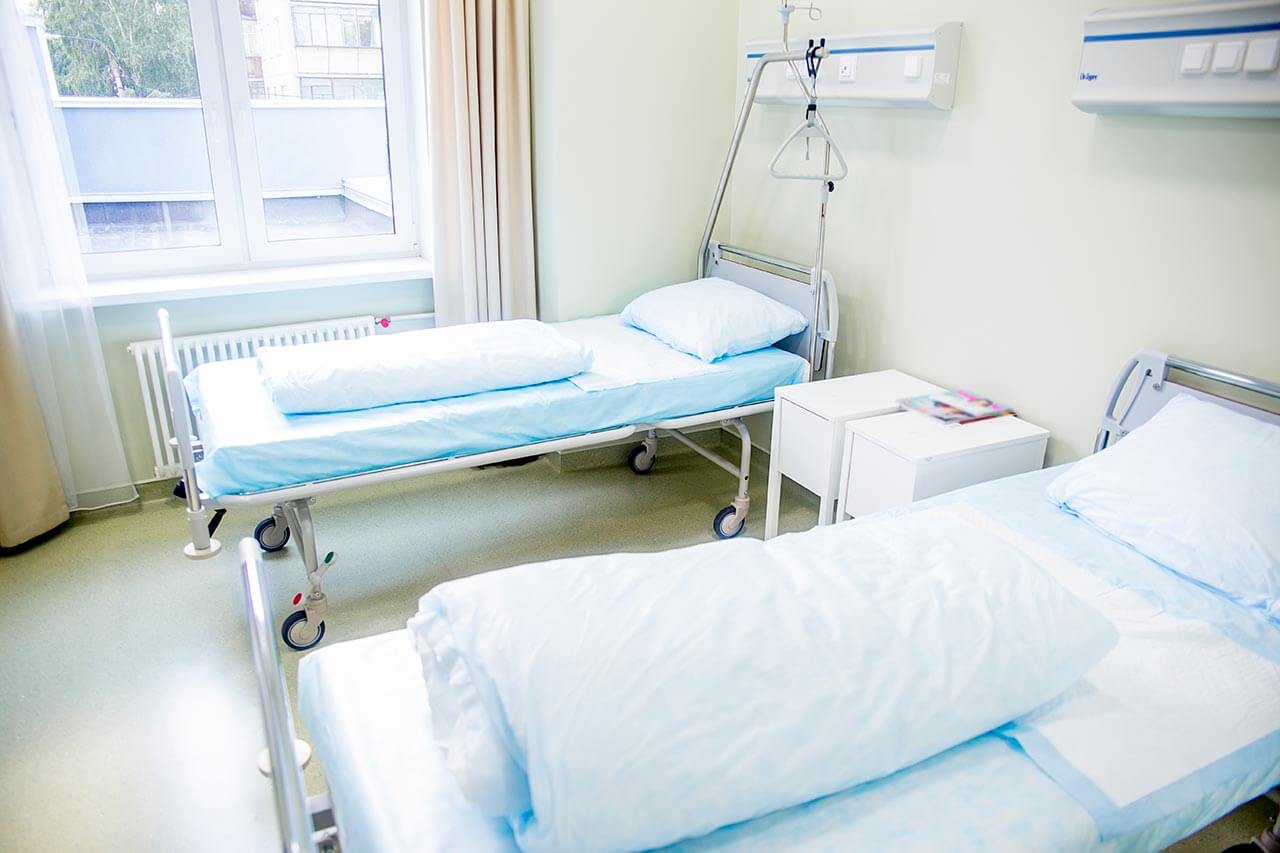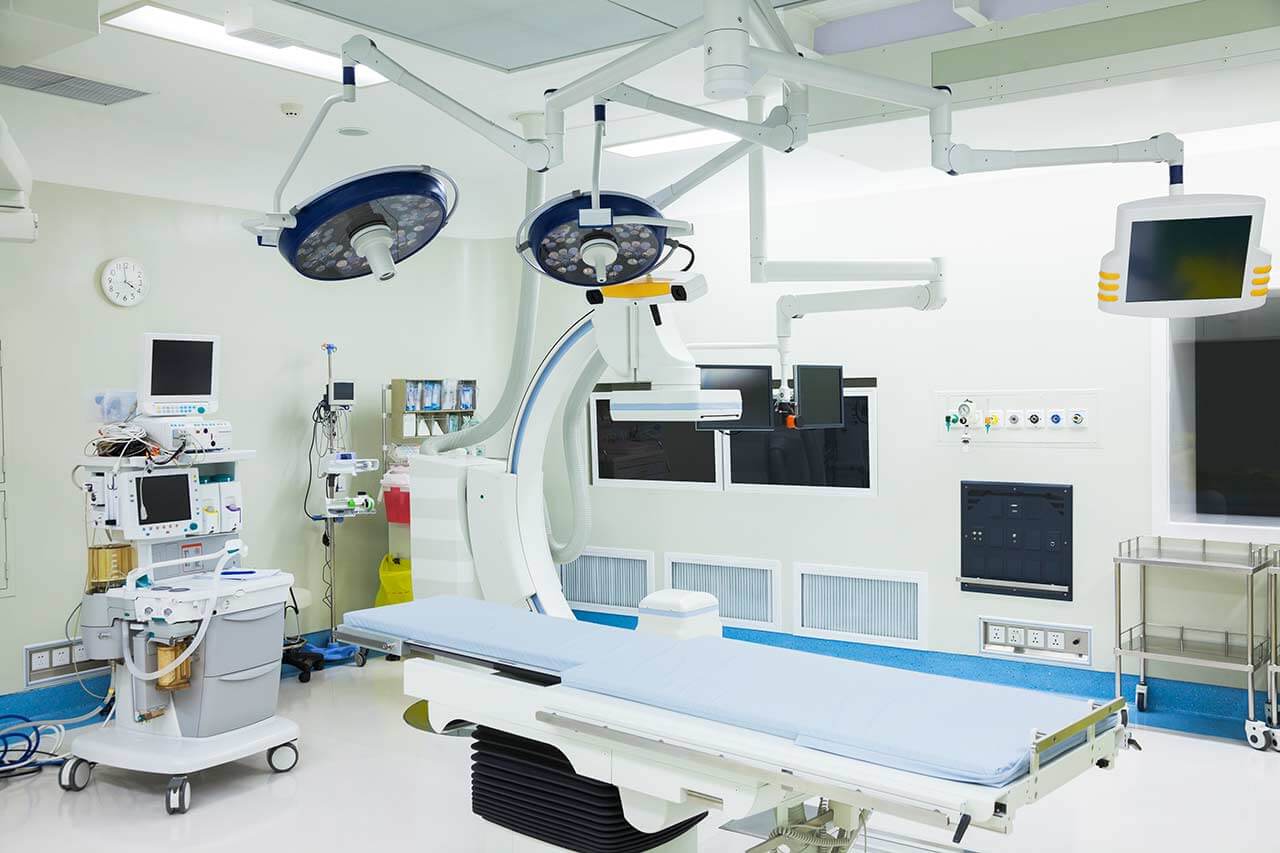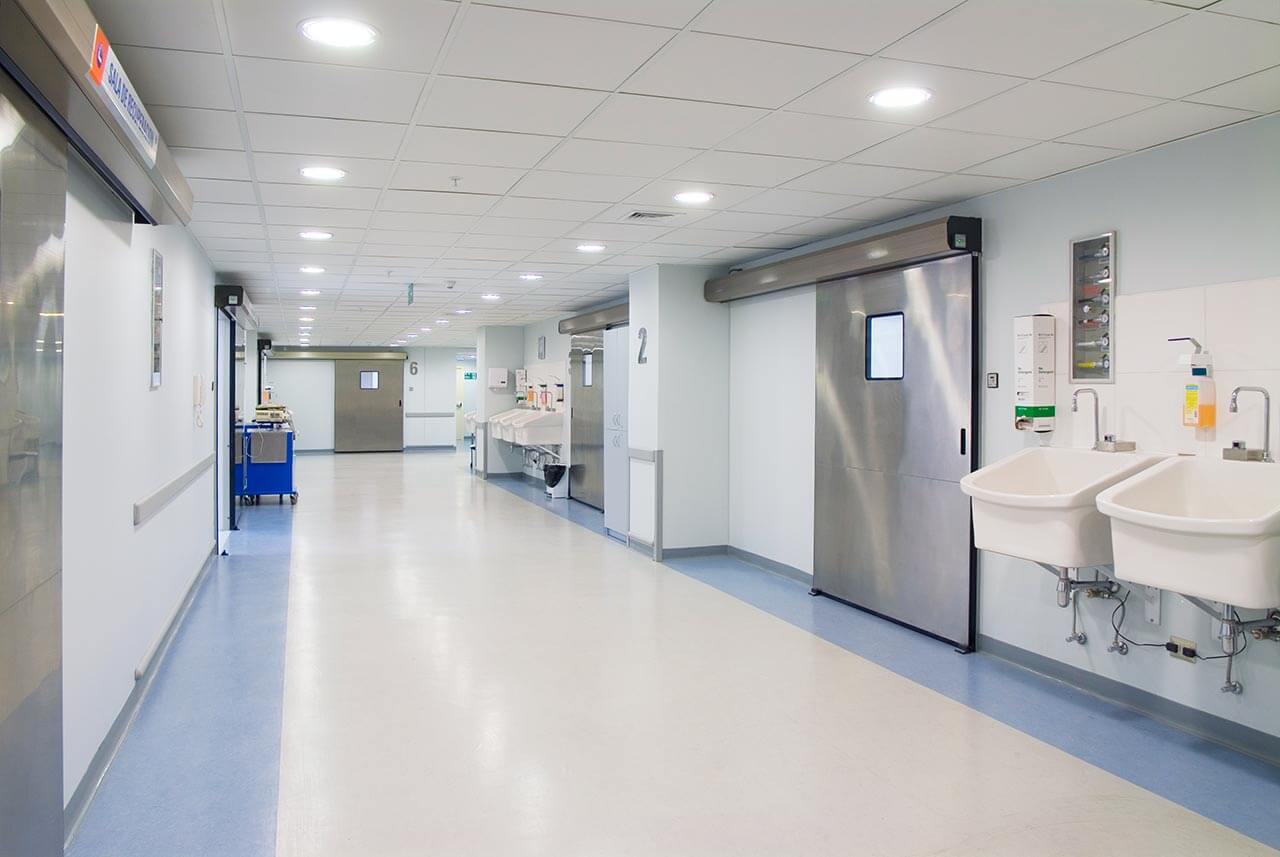
The program includes:
- Initial presentation in the clinic
- clinical history taking
- review of medical records
- physical examination
- CT scan (on indication 650 €)
- MRI scan (on indication 1200 €)
- general otolaryngological examination
- nursing services
- consultation of related specialists
- consultation of the chief physician and all leading experts
- development of individual treatment plan
- written statement
Required documents
- Medical records
- Full face and profile photo
- X-ray examination of the facial skeleton (if available)
- Maxillofacial CT scan (if available)
Service
You may also book:
 BookingHealth Price from:
BookingHealth Price from:
About the department
The Department of Adult and Pediatric Oral, Maxillofacial Surgery at the University Hospital Oldenburg offers highly accurate diagnostics and effective treatment of pathologies of the face, jaws, oral cavity, head, and neck. The department is a maximum care medical facility that provides high-quality medical services. Special attention is paid to the surgical treatment of pathologies of the oral cavity, temporomandibular joint, jaw and facial skull fractures, and benign and malignant oral cavity and facial skin tumors. The department also has a well-developed area of dental implantology. The healthcare facility is deservedly proud of its excellent results in the surgical repair of cleft lip and palate in children and adults. Each surgical procedure is carefully planned, using advanced computer simulation modeling programs when necessary, to achieve the best therapeutic and aesthetic results. The department has three state-of-the-art operating rooms where more than 1,700 surgical procedures of varying complexity are performed each year. There are 24 inpatient beds. Minor oral and maxillofacial procedures are performed on an outpatient basis. The department's team of surgeons is highly professional and always takes the time to personally communicate with patients and address their individual needs. The Head Physician of the department is PD Dr. med. Dr. dent. Lei Li.
The department's specialists focus on patients with benign and malignant neoplasms of the oral cavity, jaw, and facial skin. Oral cancer is a malignant tumor that originates from the mucous membrane of the oral cavity. The tumor can be localized on the body of the tongue, the floor of the mouth, cheeks, gums, hard palate, and salivary glands. The oncological disease manifests itself as long-term non-healing ulcers of the oral cavity or tissue proliferation. Diagnosis includes a clinical examination, a peripheral blood smear, blood biochemistry, a biopsy, chest X-ray to exclude its damage by the oncological process, and a contrast-enhanced computed tomography scan to assess the location and size of the tumor and to identify suspicious lymph nodes. If the diagnosis is confirmed, the first-line treatment is tumor resection surgery. Depending on the clinical case, the department's surgeons perform resection of the neoplasm only or remove the tumor along with part of the bone, nearby lymph nodes, and affected muscles. After major surgery for oral cancer, the department's specialists often resort to reconstructive plastic surgery to restore jaw function and facial aesthetics. In most cases, surgery is followed by chemotherapy and/or radiation therapy.
The department has gained impressive experience in the repair of cleft lip and palate in children and adults. The defect is congenital and occurs during intrauterine development. Surgical treatment is required to eliminate this congenital anomaly. The optimal age for cleft lip and palate surgery is 3-6 months. At this age, the rate of development of the bony structures of the central part of the face stabilizes and the risk of damage to the nose growth plates and cartilage decreases. Surgical treatment is aimed at restoring the anatomical integrity of the upper lip, eliminating congenital deformities of the nose and facial defects, and creating favorable conditions for proper growth and development of the central part of the face in childhood.
The department performs plastic surgery such as cheiloplasty or rhinocheiloplasty to repair cleft lip and palate. During cheiloplasty, the surgeons of the department restore the normal anatomical structure, aesthetics, and function of the upper lip. This procedure is indicated for young patients with minor defects in the development of the upper lip. In more complex cases, the department's specialists perform rhinocheiloplasty, which not only restores the shape and function of the upper lip, but also repairs the nasal cartilage and eliminates the anatomically incorrect position of the perioral muscles. In some cases, cleft palate may be associated with severe respiratory, speech, and hearing disorders due to anatomical defects in the structure of the nasal cavities, mouth, and nasopharynx. In such clinical situations, the surgeons in the department consider the possibility of uranoplasty, an operation to restore the normal anatomical shape and functions of the hard and soft palate and the middle part of the pharynx. The treatment strategy for each child with cleft lip and palate is determined on an individual basis.
The department also offers a wide range of surgical dentistry services. The oral and maxillofacial surgeons specialize in repairing developmental defects of the teeth and maxillofacial skeleton, performing interventional procedures to restore chewing function, placing dental implants, and performing sinus lifts for bone augmentation and secure fixation of the dental implants. The department also has advanced laser equipment for performing dental interventions.
The department's key clinical activities include the following:
- Surgery for benign and malignant tumors of the oral cavity, jaw, and facial skin with subsequent reconstructive plastic surgery
- Surgery for congenital and acquired oral and maxillofacial malformations with a special focus on the surgical repair of cleft lip and palate in children and adults
- Surgery for jaw and facial bone injuries
- Surgical dentistry
- Surgical repair of developmental defects of teeth and maxillofacial skeleton
- Surgery for chewing function restoration
- Dental implantation
- Other medical services
Photo of the doctor: (c) Klinikum Oldenburg AöR
About hospital
The University Hospital Oldenburg is a multidisciplinary medical complex offering top-notch services of the European standard. The hospital has 20 specialized departments, 15 highly specialized centers, and more than 10 institutes. The hospital provides services in almost all areas of modern medicine: general and abdominal surgery, cardiac surgery, orthopedics, traumatology, cardiology, oncology, dermatology, gastroenterology, gynecology, mammology, urology, and pediatric and adolescent medicine.
The hospital has 832 beds, and many diagnostic and therapeutic procedures are performed on an outpatient basis. More than 150,000 patients are treated here annually, 37,000 of them receive medical care in a hospital setting. The medical complex has a highly professional medical team of more than 2,900 employees and most departments are headed by professors with extensive clinical experience.
The hospital is home to one of the best comprehensive cancer centers in Germany (Nordwestdeutsches Tumorzentrum), certified according to the requirements of the German Cancer Society (DKG). The center successfully treats breast cancer, prostate cancer, colorectal cancer, pancreatic cancer, esophageal cancer, head and neck tumors, skin tumors, and other oncological diseases. The center uses modern cancer treatment methods with proven effectiveness and also offers allogeneic and autologous bone marrow transplantation for the treatment of severe hematologic diseases (European certification JACIE).
The University Hospital Oldenburg is an expert medical facility in robotic surgery. The hospital has a specialized da Vinci Surgery Center, where gastrointestinal, urological, and gynecological diseases are treated with excellence. Patients are operated on by highly qualified professors with in-depth expertise and extensive experience in robotic surgery.
The University Hospital Oldenburg is one of the leading medical institutions in Germany because it offers excellent medical and technical resources, qualified personnel, and a comfortable infrastructure designed with the needs of patients in mind. The hospital's physicians treat patients with complex clinical cases and achieve incredible results.
The basis of medical care in the hospital is humane attitude to the patient, empathy and understanding of his needs. During the therapeutic process, the patient is surrounded by care and, if necessary, receives professional psychological support.
Photo: (с) depositphotos
Accommodation in hospital
Patients rooms
The patients at the University Hospital Oldenburg stay in comfortable single, double, and triple rooms. Each patient room has an ensuite bathroom with a toilet and a shower. The patient rooms have a TV, a telephone, and Wi-Fi. The patient rooms in the pediatric departments are designed in an appropriate interior to make the young patients feel as comfortable as possible. A child can stay in the same room with one of the parents.
The hospital has an excellent infrastructure: there is a pharmacy, a hairdresser, an ATM, and a library with audio books, DVD movies, and board games.
Meals and Menus
The hospital offers delicious and balanced meals three times a day: breakfast, lunch, and dinner. Since 2022, a new menu "Vitalessen" has been introduced here, which excludes the addition of preservatives, dyes, and flavor enhancers to food. The menu takes into account all preferences and wishes of the patients.
There is also a cozy cafe in the hospital, where you can enjoy a tasty snack or a cup of aromatic coffee or hot tea with dessert.
Further details
Standard rooms include:
![]() Toilet
Toilet
![]() Shower
Shower
![]() Wi-Fi
Wi-Fi
![]() TV
TV
Religion
There is a chapel on the ground floor of the hospital where Catholic and Evangelical services are held regularly. Services by representatives of other religions are available upon request.
Accompanying person
Your accompanying person may stay with you in your patient room or at the hotel of your choice during the inpatient program.
Hotel
You may stay at the hotel of your choice during the outpatient program. Our managers will support you for selecting the best option.




